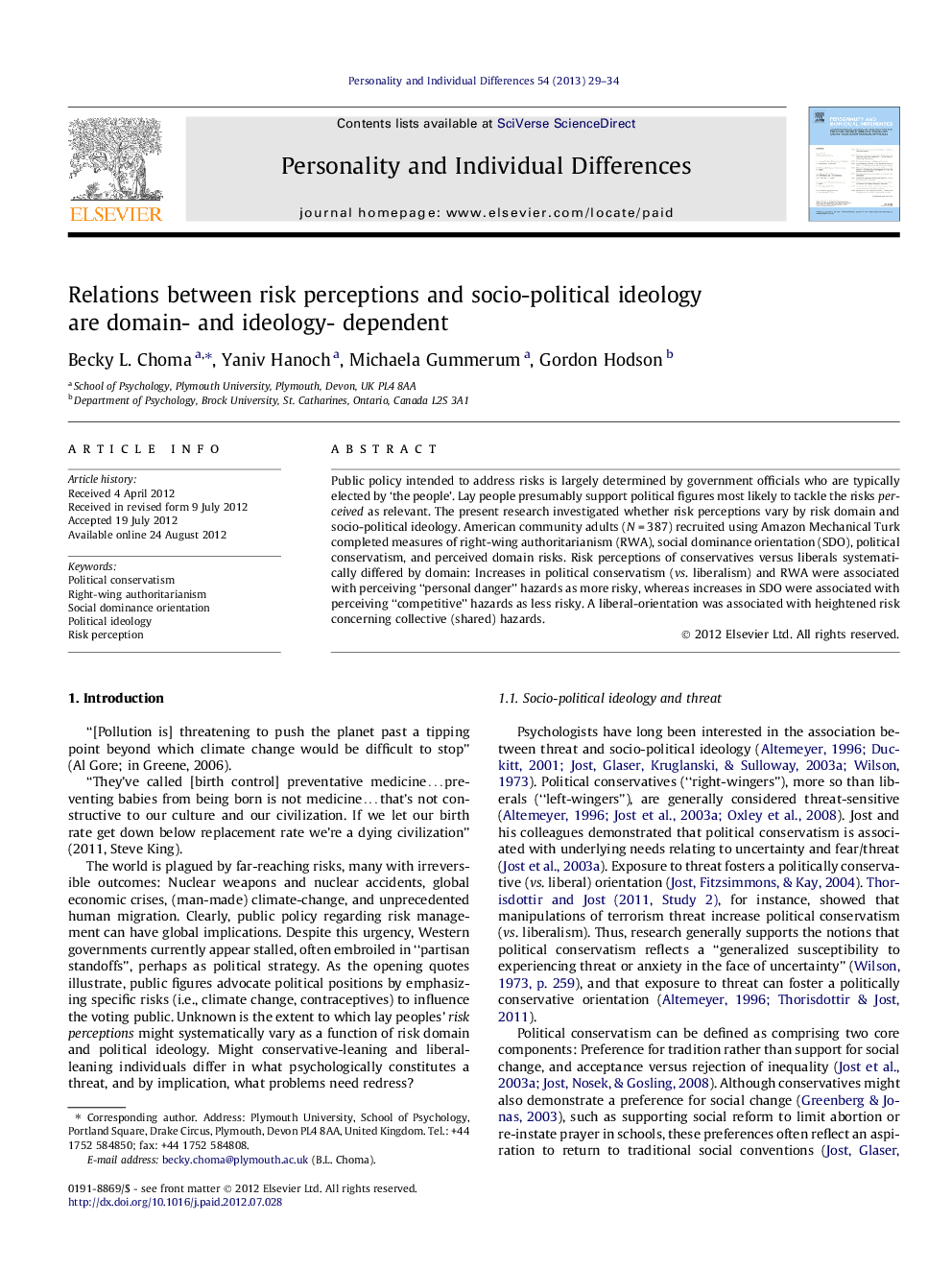| Article ID | Journal | Published Year | Pages | File Type |
|---|---|---|---|---|
| 890910 | Personality and Individual Differences | 2013 | 6 Pages |
Public policy intended to address risks is largely determined by government officials who are typically elected by ‘the people’. Lay people presumably support political figures most likely to tackle the risks perceived as relevant. The present research investigated whether risk perceptions vary by risk domain and socio-political ideology. American community adults (N = 387) recruited using Amazon Mechanical Turk completed measures of right-wing authoritarianism (RWA), social dominance orientation (SDO), political conservatism, and perceived domain risks. Risk perceptions of conservatives versus liberals systematically differed by domain: Increases in political conservatism (vs. liberalism) and RWA were associated with perceiving “personal danger” hazards as more risky, whereas increases in SDO were associated with perceiving “competitive” hazards as less risky. A liberal-orientation was associated with heightened risk concerning collective (shared) hazards.
► We investigated whether risk perceptions vary by risk domain and socio-political ideology. ► Ad Risk perceptions of conservatives versus liberals systematically differed by risk domain. ► Conservatism and RWA related to perceiving “personal danger” hazards as more risky. ► SDO related perceiving “competitive” hazards as less risky. ► A liberal-orientation related to heightened risk concerning collective hazards.
